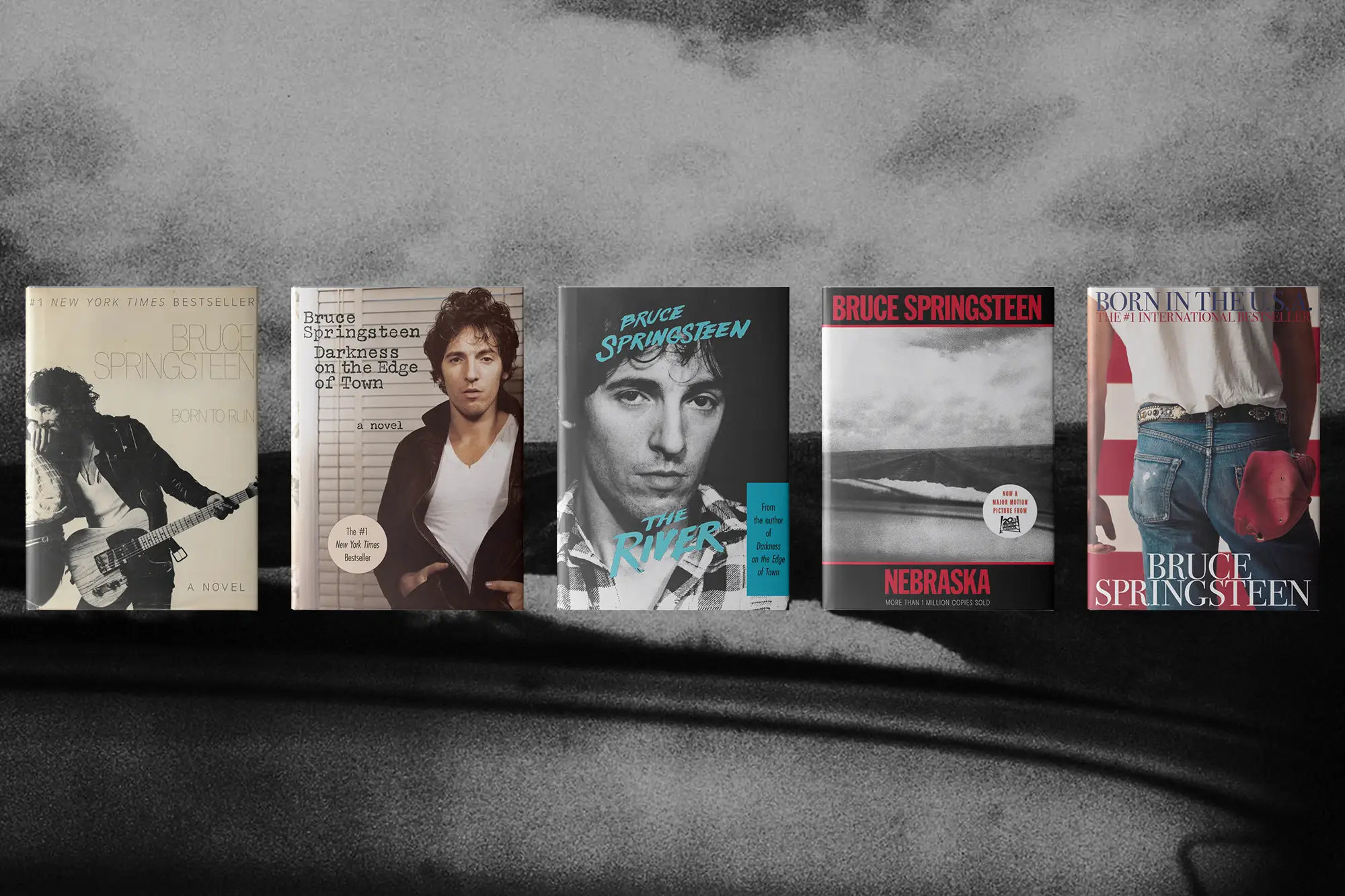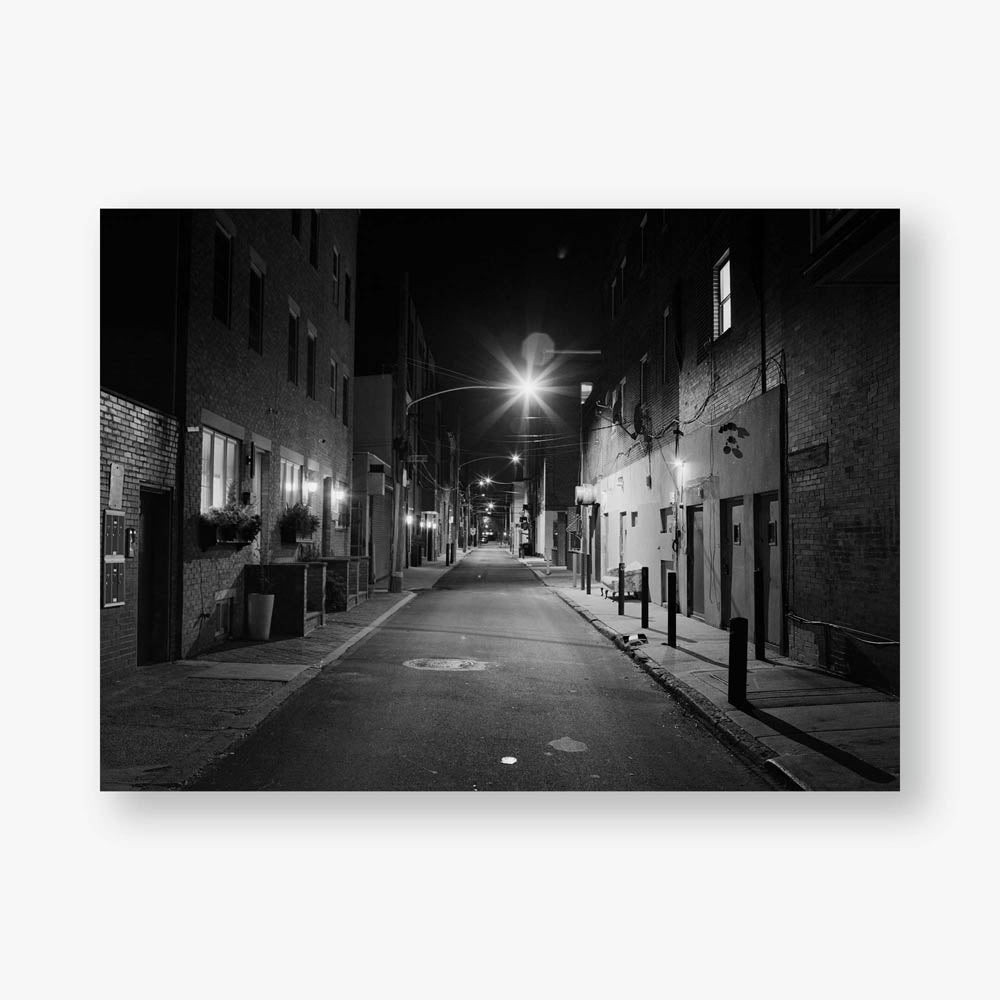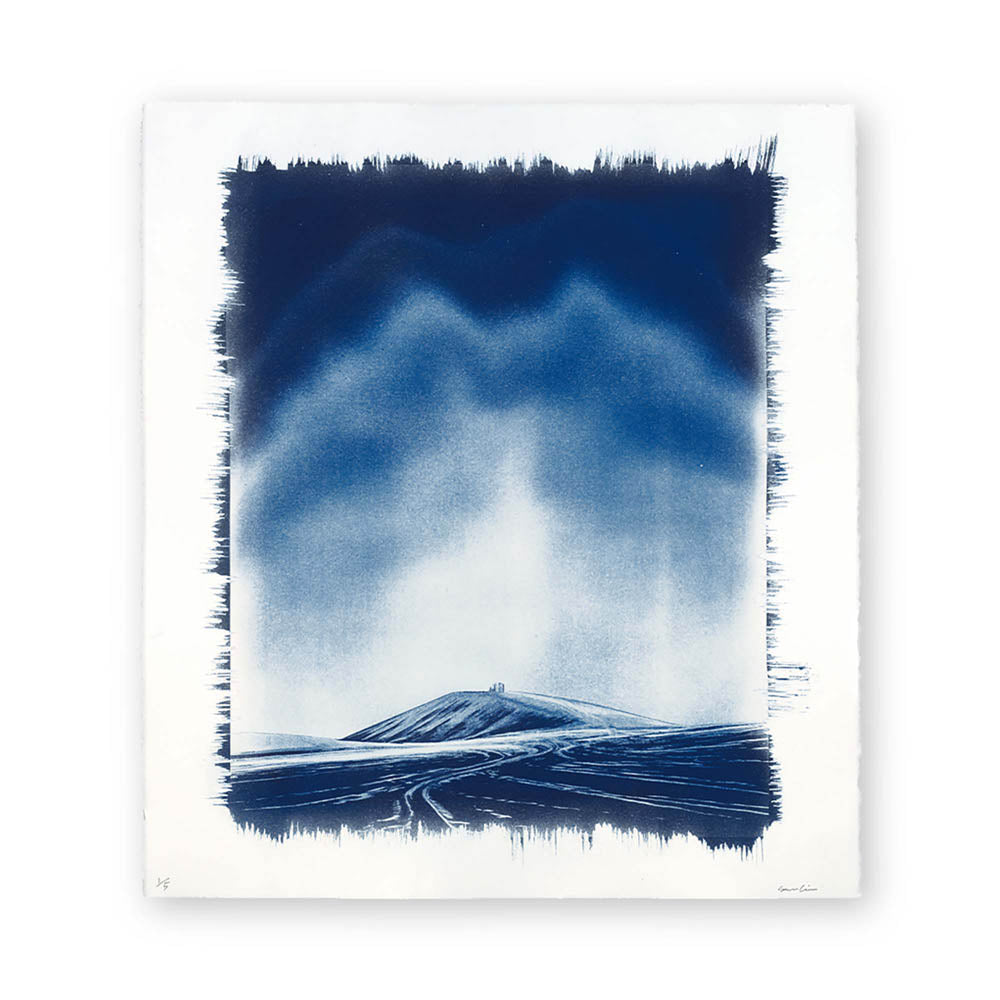The Great American Novelist We Mistook for a Rock Star
Between 1975 and 1984, Bruce Springsteen produced five albums that did more than soundtrack a generation; they mapped the emotional cartography of a collective working-class dream. Taken together, Born to Run (1975), Darkness on the Edge of Town (1978), The River (1980), Nebraska (1982) and Born in the U.S.A. (1984) read like a continuous novel sequence, a rust-belt saga blending Dante’s Divine Comedy with Larry McMurtry’s epic Lonesome Dove, tracing the arc from wild-eyed youth to weathered survivor.
Trade the Duane Eddy guitars for Kerouac’s manic typewriter, the highway-curve lyrics for sweat-stained prose, the treasured sun-beaten album jackets for book covers shoved in back pockets and stained with gasoline, and you might just have a great American novelist. In our imagined bibliography, Springsteen isn’t “The Boss” but a road poet, part Steinbeck, part Bukowski, a roadside dive bar prophet. His narrators clock in at factories, fall in and out of small-town love, and drive toward mirages of freedom that vanish at the county line. He writes about failure the way Fitzgerald wrote about wealth: as both curse and calling, and he writes about hope as the ultimate American currency, having nothing to do with odds.
So please consider now, the work of Bruce Frederick Springsteen, novelist. Five books. One voice. A lifelong search for redemption in the ruins of a promise.
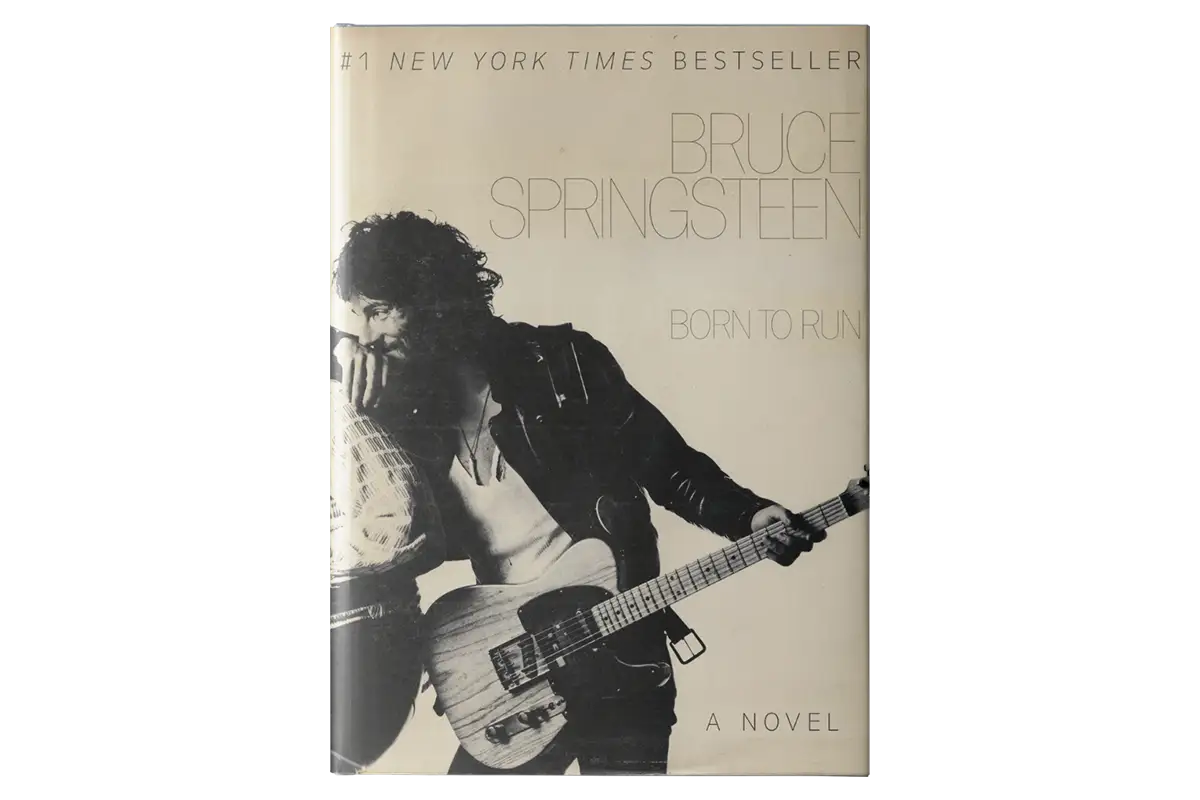
Born to Run — A Road Novel of Reckless Faith
Springsteen’s “debut novel” is a burst of combustible longing, a road story with its foot to the floor and its eyes on the horizon. We meet our narrator gripping a sink and staring at his reflection in the mirror of a gas station bathroom. Like many great writers’ early works, Born to Run is less about destination than propulsion, the sheer, holy act of motion. Its unnamed hero, a working-class dreamer from a nowhere town, believes escape itself is salvation. Every page gleams with chrome and sweat: girls leaning from car windows, engines coughing out prayer, the hum of neon bleeding into night.
For a first novel, it arrives startlingly assured. The prose is ecstatic, full of run-on sentences that refuse to slow down, even for heartbreak. Critics compared his style to early Kerouac but missed the precision beneath the blur. For all its youthful abandon, the book is meticulously built, each image welded tight, every emotion revving at redline. It’s a novel about freedom that already knows freedom is fleeting.
By the final chapter, when the narrator whispers “tramps like us,” it feels less like bravado and more like elegy. Born to Run ends exactly where many great first novels do: down in Jungleland with an exquisite howling melody hinting at the fear that maybe, even with all the promise of the open road, you can’t get far enough away from home.
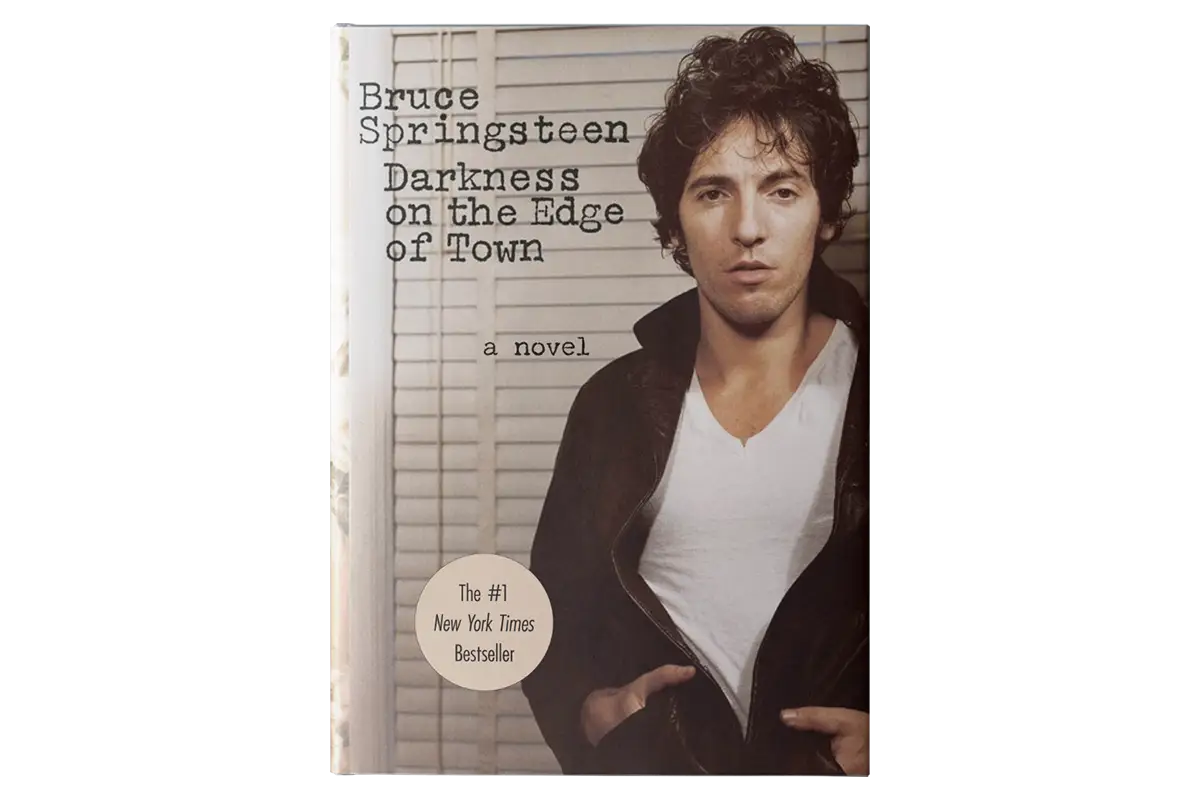
Darkness on the Edge of Town — A Night Shift Tragedy
If Born to Run was the great escape, Darkness is what happens when the car breaks down. The sophomore novel opens in the glare of the factory floor, where the air smells of oil and resignation. The narrator still dreams, but the dreams have rust on them.
Gone are the cinematic metaphors; in their place, a lean, workmanlike realism that recalls Raymond Carver or early Saul Bellow. Springsteen pares his prose to the bone. Every sentence punches like a hammer strike: “I got my facts learned real good.” His characters speak in monosyllables because that’s all they can afford. Yet beneath the austerity, the book hums with suppressed tenderness. Darkness on the Edge of Town is a hymn to dignity in defeat—a study in how hope survives humiliation.
The climactic scene, a man staring at the factory gates at dawn, could be lifted from Theodore Dreiser or Flannery O’Connor: God and labor wrestling under sodium light. By the end, you realize this isn’t a book about despair but endurance. “Some guys just give up living, start dying little by little piece by piece. Some guys come home from work and wash up, and go out racing in the street.” If the debut chased freedom, this novel finds meaning in staying put, in chasing your dreams after clocking out, even when you know you’ll never catch them.
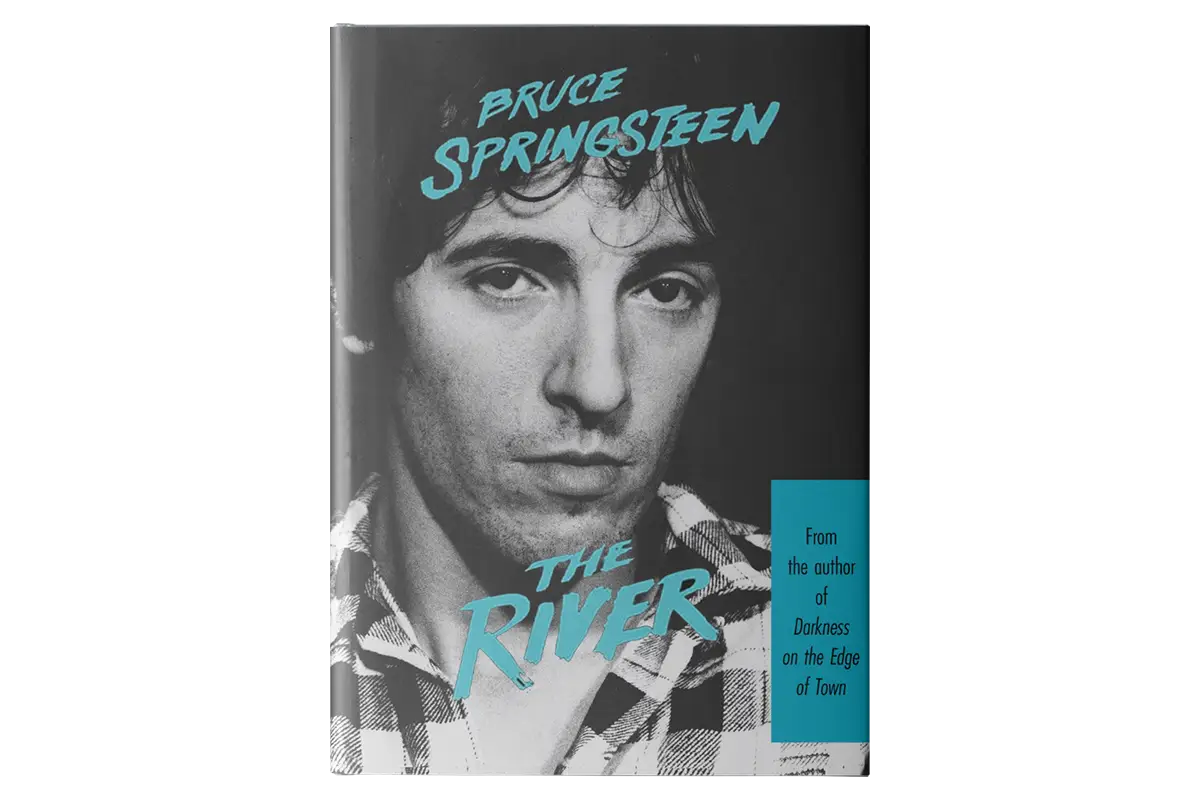
The River — A Family Chronicle of Love and Ruin
At 450 pages, The River is Springsteen’s big, ambitious sprawl—an East of Eden of the blue-collar Midwest. Here he braids together marriage, work, and inheritance, writing with a tenderness that feels earned. The prose flows between intimacy and expanse, capturing how private heartbreak ripples quietly through a whole community.
The central couple, Mary and the unnamed narrator, could have stepped out of a Raymond Carver story: young love turned mortgage, laughter turned echo. Their town is drying up, jobs fading like old photographs, but Springsteen treats their small rituals, a wedding dance, a paycheck, a half-empty bar—with reverence. This novel’s great gift is its empathy. No villains, just people trying to make rent and make sense.
If Darkness was a portrait of one man’s endurance, The River is about the collective ache of a generation. The language is musical but never sentimental, its rhythms built from repetition and restraint. When the narrator admits, “I got a job working construction for the Johnstown Company,” you can hear the thud of a door closing forever. But the recurring flashback scenes to the night the couple married, their journey down to the water to shed the prison uniforms that were their wedding dress, teaches us, with aching beauty, what it is to haunt yourself. The River asks: What is compromise? What is giving up? And is the only difference between baptism and drowning how long you wait to come up for air?
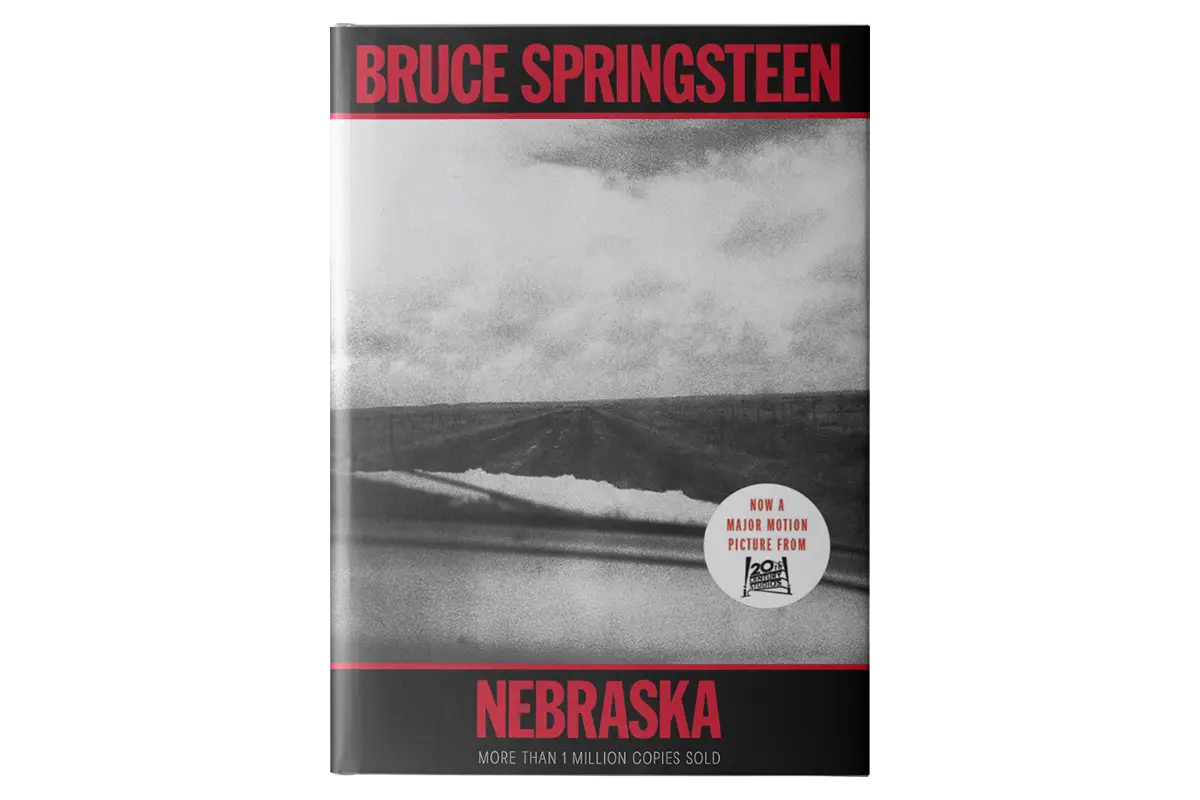
Nebraska — A Minimalist Noir in the Key of Mercy
With Nebraska, Springsteen tosses away the amplifier entirely. What remains is a stark, 200-page whisper that reads like a confessional carved into dry wood. Told through the voices of killers, loners, and ghosts, it’s a prairie noir—part In Cold Blood, part Flannery O’Connor.
Each chapter opens like a police report and unravels into a prayer. The prose is flat but feral; emotion leaks through in the white space. Springsteen’s narrator has no use for redemption. He speaks like a thundercloud, fleeing the East Coast with a brutal pursuer on his heels; the act of telling brings salvation on like a dust storm. It’s as though he’s testing how much truth language can hold before it breaks.
In Nebraska, violence and grace coexist uneasily. A murderer quotes the Bible; a drifter hums to himself in the dark. There are no choruses here, only confession. Critics called it bleak, but that misses the point: this is moral realism, stripped of ornament. Where the earlier novels roared, this one breathes—puffs of smoke in the morning chill. It’s the purest thing he ever wrote: a map of America drawn in pencil, erased, and drawn again. From the boardwalks of Atlantic City to the Plains, Springsteen gives us a moment alone to acknowledge that “everything dies, and that’s a fact,” and to wonder if “maybe everything that dies, someday comes back.”
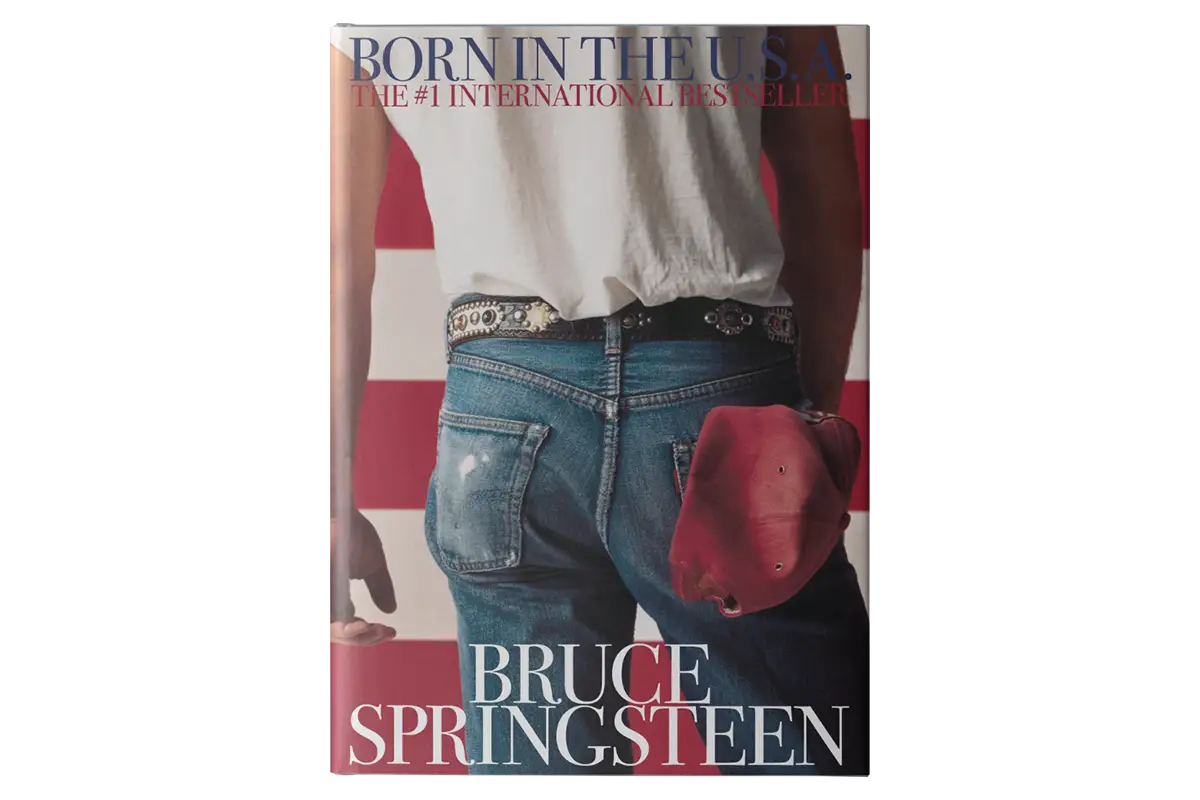
Born in the U.S.A. — A Great American Novel Misread as Anthem
The blockbuster—the novel everyone bought and almost no one understood. On its surface, Born in the U.S.A. looks triumphant: a patriotic saga, bright and loud. But read past the chorus, and it’s a book about ghosts. Veterans wander through shopping malls; fathers and sons fail to recognize each other in the mirror. Springsteen’s America has traded its soul for convenience and calls the bargain freedom.
Stylistically, it’s his most ambitious work: part reportage, part prophecy. He builds whole chapters from fragments—postcards, radio chatter, factory shifts—until they form a polyphonic lament. The language is bold, declarative, economical yet lush. What Larry McMurtry did for cowboys, Springsteen does for vets, trapped wives, union organizers, and kids who will get less than what their parents had.
What makes his work devastating is its empathy. Even as it indicts a nation, it loves it too much to turn away. By the final pages, the narrator’s shout of “I was born in the U.S.A.” lands like a cry from the wilderness and is a reminder that belonging doesn’t mean agreement, and love can sound like grief when sung loud enough.
Coda — The Reclusive Novelist of Freehold
After Born in the U.S.A., the novelist receded. He gave few interviews, preferring to tinker with old cars and older sentences in his New Jersey workshop. Scholars argue whether he burned out or simply finished saying what he needed to say. But in his quiet withdrawal, he achieved what every American artist secretly craves: mythic privacy.
Rereading the five books now, what stands out isn’t their nostalgia but their accuracy. Springsteen understood that the real story of America isn’t progress—it’s perseverance. His characters fail beautifully. They keep the lights on. They love what’s already leaving them. In his world, salvation isn’t found on the highway; it’s found in hope.
Sitting on the shelf, The Collected Springsteen Novels smell faintly of motor oil and rain, the way his sentences do. Inside, we find not just the fiction of one man, but the question: “Is a dream a lie if it don’t come true?” Springsteen’s search for an answer gave us five miraculous books where we can live the long, loud, rumbling dream of being born to run or being brave enough to stay and look ourselves in the eye.



